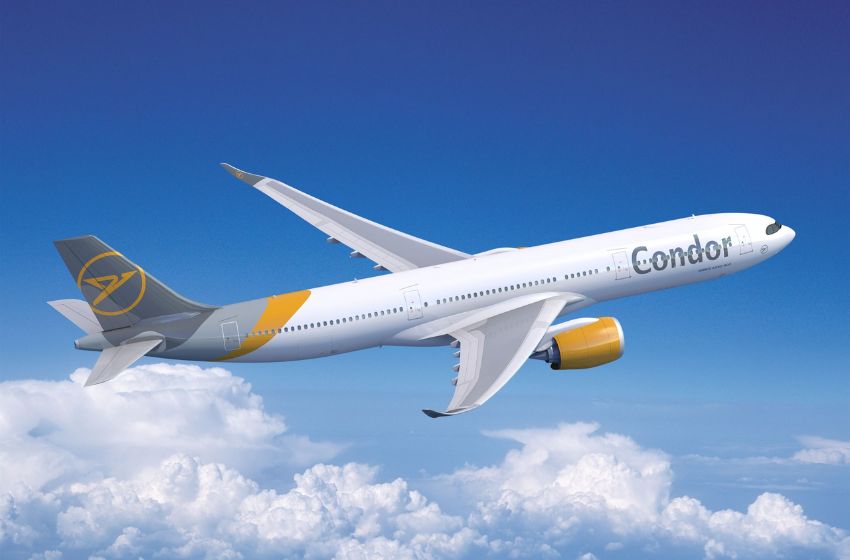For over 60 years, Condor Airlines has been synonymous with leisure travel, connecting travelers to some of the world’s most breathtaking destinations. From its humble beginnings to becoming a renowned name in the aviation industry, Condor has continuously evolved to meet the changing demands of travelers. This blog takes a closer look at the fascinating journey of Condor Airlines over six decades, exploring its history, evolution, and impact on the leisure travel market.
The Birth of Condor Airlines: A Vision for Leisure Travel
Condor Airlines was founded in 1955 as “Deutsche Flugdienst GmbH,” a small German airline with a big vision: to make air travel accessible for leisure travelers. At the time, air travel was mostly reserved for the wealthy, but Condor sought to democratize flying by offering affordable flights to popular vacation spots. The airline’s first flight took off from Frankfurt to Jerusalem, marking the beginning of a new era in leisure travel.
Throughout the 1960s, Condor expanded its fleet and destinations, focusing on holiday hotspots like Majorca, Spain, and the Canary Islands. This strategic move helped establish Condor as a pioneer in charter flights, catering specifically to the growing number of European vacationers looking for sun, sand, and relaxation.

Expanding Horizons: Growth and Diversification in the 1970s and 1980s
The 1970s and 1980s were transformative decades for Condor Airlines. During this period, the airline diversified its offerings and expanded its reach beyond Europe. Condor introduced long-haul flights to exotic destinations such as Thailand, Sri Lanka, and the Caribbean, capturing the imagination of adventurous travelers seeking new experiences.
This expansion was supported by the acquisition of larger aircraft, like the Boeing 767, which enabled Condor to offer non-stop services to far-flung destinations. As a result, the airline gained a reputation for providing reliable, affordable flights to some of the most desirable locations in the world, further solidifying its position in the leisure travel market.
Navigating Challenges: Surviving the Turbulent 1990s
The 1990s brought new challenges for Condor, as the airline industry faced significant changes, including increased competition and fluctuating fuel prices. To navigate these turbulent times, Condor focused on enhancing its customer experience by introducing in-flight entertainment, more comfortable seating, and improved meal services. The airline also diversified its flight routes, adding new destinations in North America and Asia.
During this period, Condor became a subsidiary of Lufthansa, which provided the airline with additional resources and operational support. This partnership allowed Condor to strengthen its position in the market and continue its tradition of affordable leisure travel while maintaining a high standard of service.
Innovating for the New Millennium: Embracing Change in the 2000s
As the world entered the new millennium, Condor Airlines embraced innovation to meet the changing needs of travelers. In 2002, Condor became one of the first airlines to introduce a Premium Economy Class, offering more legroom, additional baggage allowance, and premium in-flight services. This new class was a hit with travelers who wanted an enhanced travel experience without the cost of a full business class ticket.
The airline also invested in digital transformation, including the development of an online booking system and mobile app, which made it easier for customers to plan their vacations and manage bookings. These innovations reflected Condor’s commitment to staying ahead of the curve in an increasingly competitive market, ensuring that it continued to attract both new and returning customers.
Rebranding and Resurgence: The 2010s Era of Renewal
The 2010s marked a period of rebranding and resurgence for Condor Airlines. In 2013, Condor rebranded itself with a new logo, modern livery, and a refreshed brand identity that emphasized its heritage as a leisure travel airline. The airline’s fleet underwent a major refurbishment, with new aircraft being added to improve fuel efficiency and reduce environmental impact.
Condor also expanded its network further, adding more routes to North America, Africa, and Asia. With a renewed focus on sustainability, Condor invested in fuel-efficient aircraft and adopted greener practices across its operations. This commitment to sustainability not only reduced costs but also aligned with the growing demand for eco-friendly travel options, enhancing Condor’s appeal to a new generation of conscious travelers.
A Bright Future: Condor’s Vision for the Decades Ahead
As Condor Airlines looks to the future, it remains committed to its mission of providing affordable, high-quality leisure travel. The airline continues to invest in modernizing its fleet with more fuel-efficient aircraft, reducing its carbon footprint, and maintaining its position as a leading player in the leisure travel market. Condor is also expanding its digital capabilities, leveraging technology to offer more personalized services and a seamless travel experience.
Condor’s future plans include further expanding its route network, offering more non-stop flights to new destinations, and enhancing its customer experience with improved amenities and services. With over six decades of experience and a focus on innovation and sustainability, Condor Airlines is well-positioned to meet the evolving needs of leisure travelers in the years to come.

Conclusion: Six Decades of Soaring Success with Condor Airlines
For more than sixty years, Condor Airlines has been a cornerstone of the leisure travel industry, connecting millions of travelers to their dream destinations. From its pioneering early days to its current status as a modern and innovative airline, Condor has continuously adapted and evolved to meet the demands of a changing market. As it moves forward, Condor remains dedicated to delivering memorable travel experiences, ensuring that every journey is as enjoyable as the destination itself. With a rich history and a forward-looking approach, Condor Airlines is set to continue soaring for many more decades to come.



